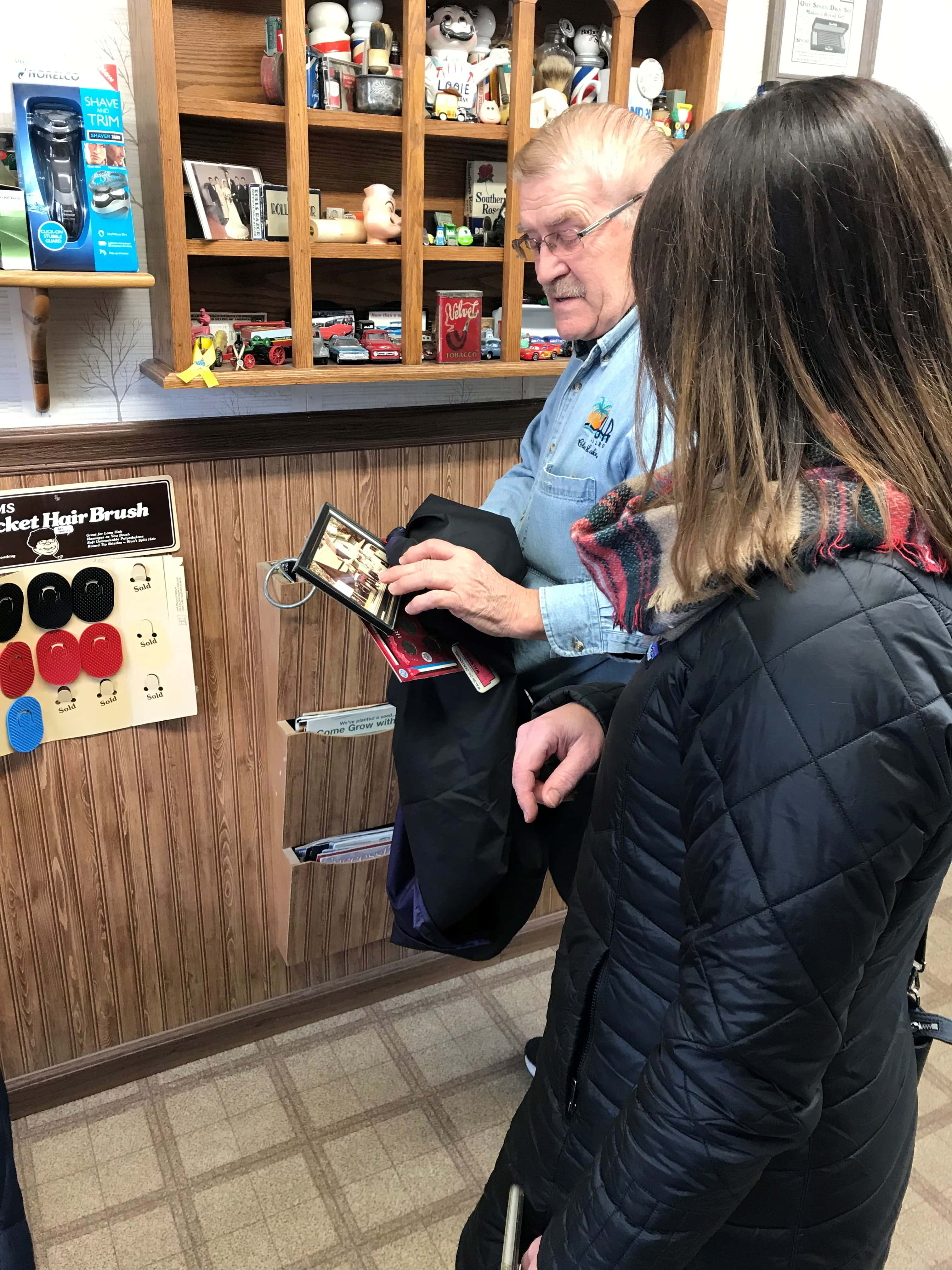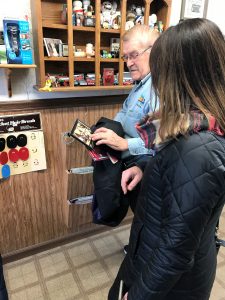
OAKES, N.D. (NDSU Extension) – On a Friday night in 2013, Edie Ramstad decided to close her business the following Monday, not because it was failing, but because she couldn’t keep up with the demand.
Then the owner of the Weave Got Maille jewelry business attended the 1 Million Cups program in Fargo that gives entrepreneurs the opportunity to connect, engage and learn from each other. After receiving encouragement and advice on ways to run her business without working 60 hours a week and deal with issues such as the post office having trouble handling the volume of her mail orders, she opted to give the business a second chance.
Now the Ada, Minn.,-based business, which makes small metal rings called jump rings that customers can turn into intricately designed chainmaille-type bracelets and other jewelry, has $1 million-plus in sales annually. Ramstad also launched two other companies: Premier Anodizing, which provides a protective oxide coating for Weave Got Maille’s aluminum jump rings and items such as ID tags, tools and car parts for other companies; and 13 Straws, which produces reusable drinking straws made of anodized aluminum.
Ramstad will share her experiences during Energizing Entrepreneurs, a conference North Dakota State University Extension is hosting in Oakes, N.D., May 7-8.
This isn’t your typical conference, according to organizers. It’s being held in a rural community, not a major city, and breakout sessions will be at local businesses, not a conference center. Local business owners will be the presenters. They’ll discuss issues such as how fledging businesses can make use of empty buildings or shops on Main Street, and show that entrepreneurs can be successful in rural America.
“It’s a whole different world in the rural area,” says Lynette Flage, NDSU Extension’s assistant director for family and community wellness. “That’s what’s exciting about this.”
Extension plans to host another Energizing Entrepreneurs conference in northeastern North Dakota this fall.
The conference is one of several NDSU Extension programs and events designed to support the statewide effort to build healthy, vibrant communities, a 21st century workforce and a smart, efficient infrastructure. In late February, Extension community development specialists joined a number of agencies on a webinar to inform community leaders throughout the state about the assistance and resources Extension has to offer.
Community Impressions is one of those programs. A group of volunteers from two similar communities make unannounced visits to each other’s town, then report their findings to the other town’s residents and leaders. The idea is to help communities learn about their strengths and weaknesses through the eyes of first-time visitors, then use that information to improve themselves.
“We all have to be better at telling our story,” says NDSU Extension leadership and civic engagement specialist Jodi Bruns.
Teams from Hankinson and Park River recently exchanged visits.
“I think it kind of gets ideas in our head about what would be nice to have in our community,” says Angie Evans, Hankinson’s deputy city auditor and a member of the team who visited Park River.
She adds that residents are so used to what they have that seeing the community from outsiders’ point of view will be very helpful.
Extension soon will have a new tool in its community development toolkit: the Design Your Succession Plan for Small Businesses program. Based on Extension’s Design Your Succession Plan program for farmers and ranchers, the new program helps businesspeople transition their small business to the next generation.
Other Extension programs that can help vitalize communities include:
Marketing Hometown America – In this program, community members start with structured conversations, called study circles, with assistance from a trained community facilitator. Residents then brainstorm ideas for marketing the community and identify issues they can’t do anything about, such as regulations, age and composition of the community, technological changes, the economy, and competition from neighboring communities, regions or states. Plus, they discuss issues they can change, such as the visual first impression of the community, the condition of infrastructure, the way residents choose to identify and act on their decisions, and how the community develops a welcoming culture for new residents.
Program participants also do research on who is coming to the community and why; decide whom to target with their marketing efforts; and identify aspects of the community that need to be improved, updated or removed to meet that target group’s needs.
The final step is developing a marketing plan. That includes looking at the community through the eyes of the target group, and determining if the community has a slogan or marketing message and whether it fits and is effective, whether existing marketing materials have a consistent message and what techniques the community should use to reach its target audiences,
Lead Local – It’s a one-day program that teaches aspiring, elected and appointed leaders about ethics, parliamentary procedure, different personality styles and conflict resolution.
Building Tomorrow’s Leaders – It helps ninth- and 10th-graders get involved civically, build skills and confidence to lead, and develop personal and professional networks.
Extension also helps support farmers markets, which give local produce growers a place to sell their fruit and vegetables. As part of that effort, Extension encourages farmers markets to accept SNAP (Supplemental Nutrition Assistance Program) benefits so low-income families are able to buy the locally grown produce.
Flage calls this a win-win situation because local entrepreneurs are able to market their produce and communities have access to fresh, nutritious fruits and vegetables.

